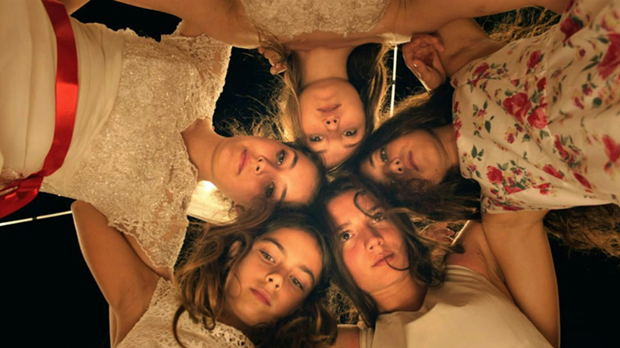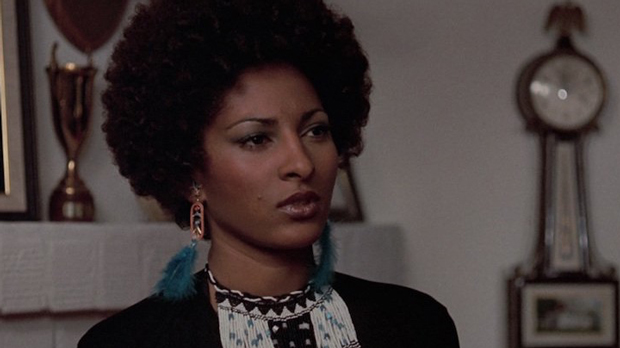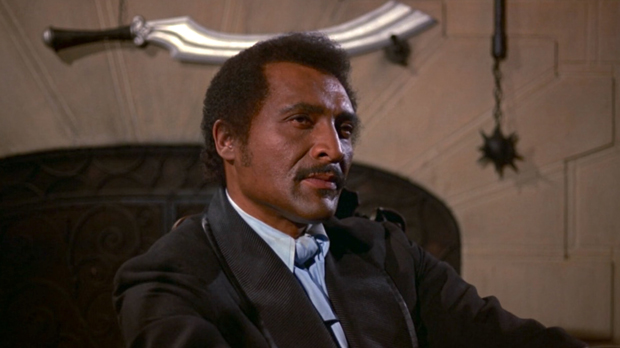 Mustang (2015) Cohen Media Group/Drama RT: 97 minutes Rated PG-13 (mature thematic material, sexual content, a rude gesture) Director: Deniz Gamze Erguven Screenplay: Deniz Gamze Erguven and Alice Winocour Music: Warren Ellis Cinematography: David Chizallet and Ersin Gok Release date: January 15, 2015 (Philadelphia, PA) Cast: Gues Sensoy, Doga Zeynep Doguslu, Elit Iscan, Tugba Sunguroglu, Ilayda Akdogan, Nihal G. Koldas, Ayberk Pekcan, Bahar Kerimoglu, Burak Yigit, Erol Afsin, Suzanne Marrot. Spoken in Turkish w/English subtitles
Mustang (2015) Cohen Media Group/Drama RT: 97 minutes Rated PG-13 (mature thematic material, sexual content, a rude gesture) Director: Deniz Gamze Erguven Screenplay: Deniz Gamze Erguven and Alice Winocour Music: Warren Ellis Cinematography: David Chizallet and Ersin Gok Release date: January 15, 2015 (Philadelphia, PA) Cast: Gues Sensoy, Doga Zeynep Doguslu, Elit Iscan, Tugba Sunguroglu, Ilayda Akdogan, Nihal G. Koldas, Ayberk Pekcan, Bahar Kerimoglu, Burak Yigit, Erol Afsin, Suzanne Marrot. Spoken in Turkish w/English subtitles
Rating: *** ½
For the first time in I don’t know how long, I didn’t see any of the movies nominated for Best Foreign Film prior to the announcing of the year’s Academy Award nominees. That was yesterday. Mustang, the Turkish-language entry from France, opens in Philadelphia today. It’s a strikingly beautiful film about the grim reality of living in a patriarchal society.
Five sisters are imprisoned in their home by their strict uncle (Pekcan) after their playful behavior with a group of male classmates is mistaken for promiscuity. Being a teenage girl is tough enough in a free country, now imagine one trying to come of age in a place where women are traditionally kept in subservient roles. It can’t be easy what with all the angst and sexual curiosity that comes with being a teenager (or preteen). You think slut-shaming is bad? How about getting punished for just being a normal young girl? Director (and co-writer) Deniz Gamze Erguven, making her feature film debut, infuses Mustang with the same sense of haunting melancholy as Sofia Coppola’s debut The Virgin Suicides. The two films, aside from setting, are remarkably similar right down to the sense of outrage the audience feels towards the oppressors.
It’s the last day of school and five sisters (from youngest to oldest)- Lale (Sensoy), Nur (Doguslu), Ece (Iscan), Selma (Sunguroglu) and Sonay (Akdogan)- are looking forward to a leisurely summer. While walking home along the beach, they play in the water with some boys, splashing around and engaging in “chicken fights”. When they get home, their grandmother (Koldas) is waiting to scold and beat them for illicit behavior. It seems that a neighbor spotted them playing and reported it to their grandmother who’s been raising the girls since their parents died. The uncle decides that from here on in, the girls will be confined to the house and have no contact with the outside world. Everything that could possibly corrupt- e.g. magazines, fashionable clothing, phones and the computer- is removed from the home. The house is turned into a fortress with bars on the windows and locked doors. It’s also decided that arranged marriages will be set up for the older girls. All the older female relatives show up to teach the girls how to be proper wives.
Free-spirited Lale, who doubles as narrator, can’t and won’t be contained. Like the titular horse, she yearns to run wild and free. It’s Lale who talks the others into sneaking out to attend a football game, an activity forbidden by her uncle (he won’t even let her watch the game with him and his friends).
Even though much of Mustang is grim, it has a dreamy, storybook quality to it. The girls do whatever they can to make the best of their situation. In one scene that truly represents their close bond, they goof around on their bedroom floor, a tangled mass of hair, legs and feet. The five girls give amazing performances. The fact that none of them are professional actors gives Mustang an extra layer of authenticity. It doesn’t hold back when it comes to certain hard truths about what goes on behind closed doors, but its storybook tone makes it a little easier to take. It doesn’t wallow in ugliness like other films dealing with female oppression in conservative regions in and around the Middle East (it’s set in a small village in Turkey). It’s beautifully shot; the cinematographers make great use of the region’s natural landscapes and the Black Sea.
It also gives us a tenacious young heroine determined to escape the bonds of a male-dominated society before it’s too late. It’s interesting to observe how each girl reacts to the ever-tightening restrictions placed on them by closed-minded authority figures. Much of what happens in Mustang is bound to make the viewer angry; injustice and unfairness based on race, religion or gender tends to have that effect. Thankfully, Erguven balances it out with a hopeful ending. It’s not always easy to watch, but it’s definitely a worthwhile viewing experience.




